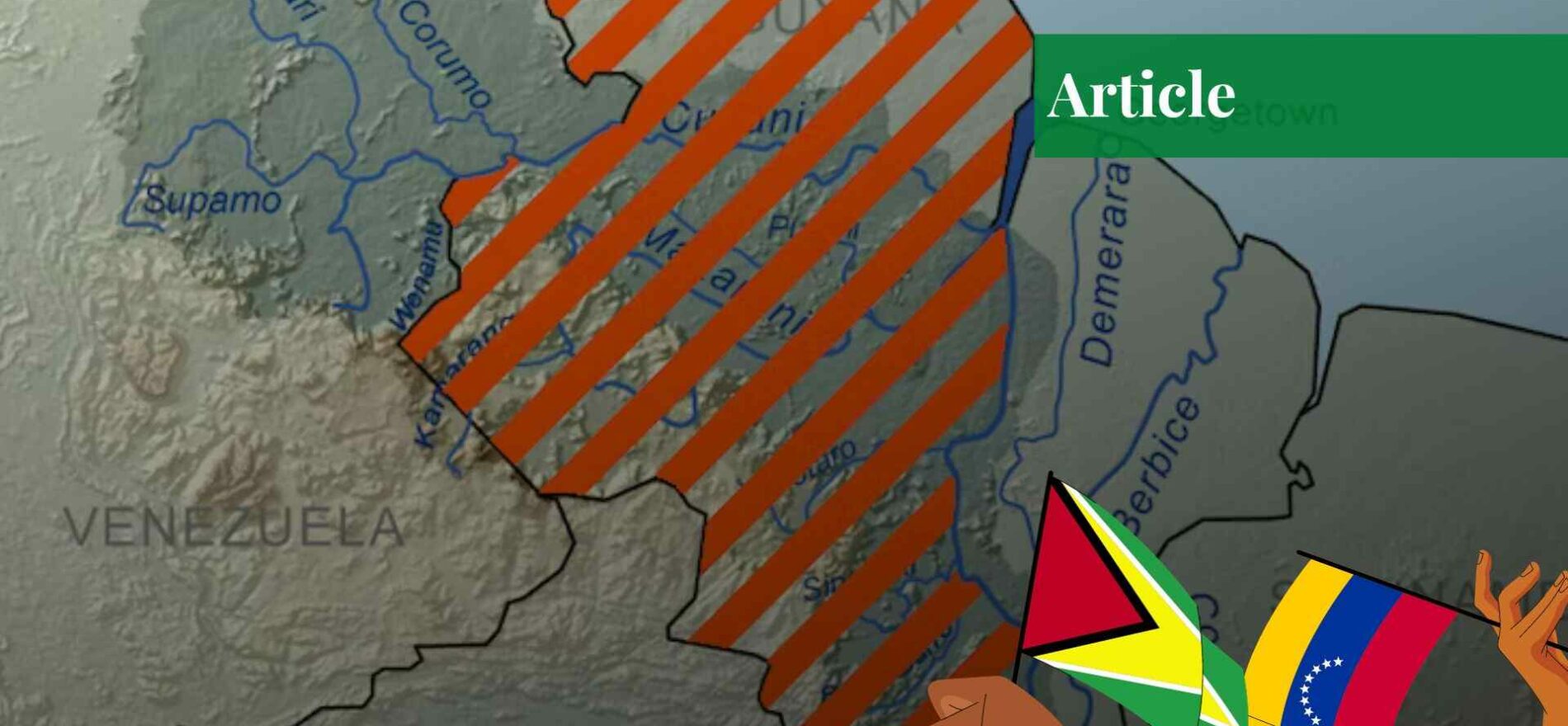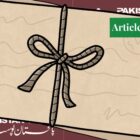Mr. Abbas studies International Relations at Quaid-e-Azam University, Islamabad.
Venezuela and Guyana, countries situated in Latin America, may encounter the probable escalation of a land dispute into a military confrontation. Venezuela lays claim to the Essequibo region that currently lies within the boundaries of Guyana. In the previous month, a referendum was conducted in Venezuela, according to which 95 % favored annexation of the disputed region.

Source: AFP
The 2023 Referendum
The current government in Venezuela had launched an advisory referendum on Venezuela’s claims to Guyana Esquiba region. The referendum took place on December 3, 2023, in Venezuela, not involving the votes from the disputed territory. The referendum consisted of five questions regarding various aspects of Venezuela and Guyana’s claim to the territory.
The aspects covered in the questions were:
- Rejecting the 1899 Paris Arbitration Award
- Considering only the 1966 Geneva Agreement as satisfactory
- Disregarding the jurisdiction of the International Court of Justice
- Opposing Guyana’s disposition of a sea delimitation
- Incorporating Essequibo into Venezuela’s territory
The referendum was one of the causes of the crisis erupting between Guyana and Venezuela. According to the Venezuelan government, more than 95% of Venezuelans voted “yes” on each of the five questions on the ballot. International analysts and the media reported that voter turnout was significantly low and that the Venezuelan government had falsified the results.
Though recently sparked, the dispute dates back many years in the history of these post-colonial states.
History of the Land Dispute
The dispute over the territory began in 1841 when the Venezuelan government objected to the Schomburgk Line, a border that gave Great Britain control of the Essequibo region. Venezuela challenged the British delineation in that year, arguing that the boundaries were set during their independence from Spain. Venezuela effectively claimed two-thirds of British Guyana by claiming that its borders went as far east as the Essequibo River. Following the discovery of gold in the disputed territory, Great Britain attempted to increase its influence and claimed an extra 33,000 square miles to the west of the Schomburgk Line – the location of the gold discovery.
To avoid further conflict, Great Britain offered Venezuela some of the area, preserving British rights to lands as far east as the Essequibo River. Dissatisfied with the agreement, the Venezuelan government disputed the limited lines. Citing the Monroe Doctrine as support for American intervention, Venezuela protested in 1876 and asked for help from the US. Venezuela frequently requested U.S. assistance throughout the following 19 years, urging its northern neighbor to step in and either forcefully intervene or sponsor arbitration. In response, the US voiced concern but did not take any concrete steps to help find a solution.
In the 1890s, the United States encouraged both sides to submit their territorial claims to binding arbitration. Exchanges between Great Britain and Venezuela later led to the signing of an arbitration by the International Arbitration Tribunal in 1899 that granted the Britishers rights to most of the area. But in the 1960s, the problem returned when Venezuela made a statement in which it did not recognize the previously established order.
In the following years, other agreements were made between the countries, but they never seemed to pan out because both sides claimed that their territorial sovereignty in the Essequibo region was violated. The case was later settled by the International Court of Justice (ICJ). During the 1980s and 1990s, Venezuela’s foreign policy, characterized by a strong integration project and incentives for oil exploration, allowed relations with Guyana to soften.
Recent Developments
However, the dispute resurfaced in recent years. There are several prominent reasons behind the suddenly re-aroused interest of Venezuela in Guyana’s territory.
There lie vast oil resources in the exclusive economic zone of Guyana near the Essequibo region. Because of it, the GDP of the country almost tripled in the past few years. The investments of foreign oil companies gave a significant push to the country’s GDP. With an estimated reserve of eleven billion barrels, Guyana is deduced to be one of the largest oil producers.
On the other hand, despite exploiting its vast oil reserves throughout the previous century, poor planning in Venezuela has led to overdependence on oil, ultimately resulting in poor administration and miserable socio-economic conditions. In such a scenario, Venezuela considers the offshore oil fields as potential rectifiers.
On top of that, such a referendum is seen as an attempt by the current President of Venezuela Nicolás Maduro to divert the attention of the public from the poor performance of his sitting government. Like the elections in the country, analysts have questioned the authenticity of this referendum. In any case, this referendum ought to support the case of Venezuela in the International Court of Justice.
Regional Response and Implications
Venezuela has not yet accepted the International Court of Justice’s jurisdiction over the dispute. However, Guyana’s President Irfaan Ali called on the Venezuelan government to act under international law and find a peaceful solution to the crisis. Both presidents are holding talks over the dispute. However, the referendum can provide a strong political base for the current Venezuelan government for the upcoming elections in 2024. In this regard, the role of political leadership from regional organizations such as CARICOM and the United States Administration, including the neighboring countries, is crucial in reducing the potential problem.
The most immediate neighbor to this conflict is Brazil. The current Brazilian leadership has been showing a neutral approach towards the two countries. Still, possible escalation by Venezuela is not a good option. Due to dense jungles, the only land route that joins Venezuela and Guyana is a single road that also passes through Brazil. To deter any further steps, Brazil has deployed troops across its borders with the two countries.
The US has been active in Latin America before to guard its interests. Militarily, the US started joint air exercises with Guyana in the region after the recent developments. As a response to Venezuelan aggression, the US might opt for reintroducing sanctions on exports from Venezuela.
Conclusion
Although both countries are committed to asserting national sovereignty over the disputed territory, the lack of military action indicates their reluctance to intervene. In the face of US sanctions and the desire to participate more in Latin America, Venezuela, which has suffered economic problems, may finally choose to negotiate through regional and international measures, rather than to act. This fact also became obvious as both presidents sat together and decided to attempt to resolve the matter peacefully. Nevertheless, it is an important conflict to observe in the year to come.
If you want to submit your articles, research papers, and book reviews, please check the Submissions page.
The views and opinions expressed in this article/paper are the author’s own and do not necessarily reflect the editorial position of Paradigm Shift.



















